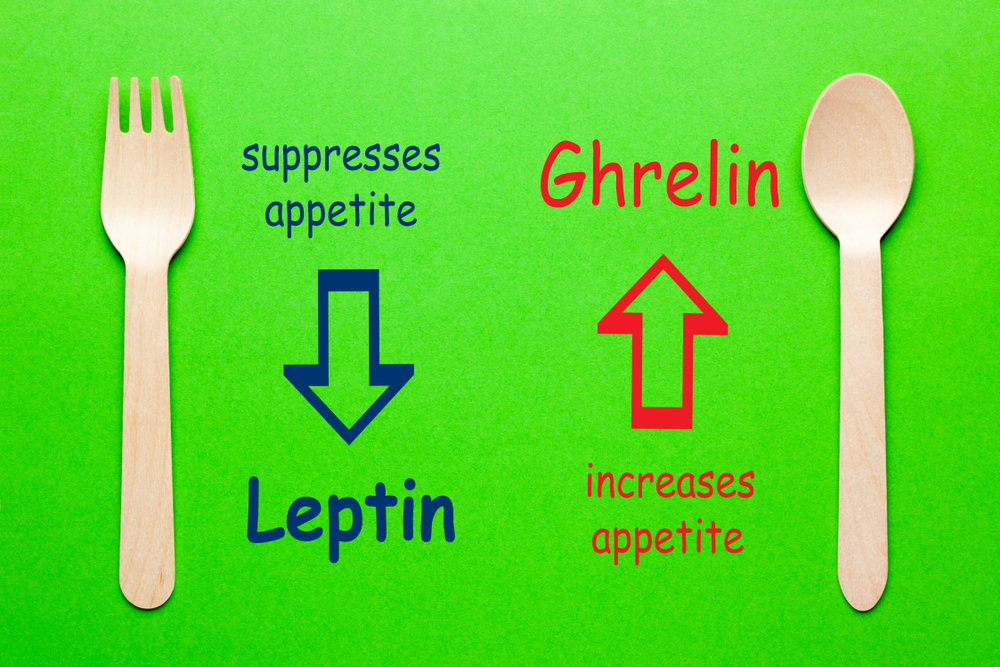What's On This Page?
ToggleSummer is here, and with it comes the desire for weight loss. We all want to shed those extra pounds gained during the winter months when everyone binged The Hunger Games and ate too much cheesecake. While many Americans have turned to expensive drugs like Ozempic, there are natural and effective ways to lose weight without breaking the bank.
Before I get started with the tips, I want to mention serotonin since it will not be covered in this article. Serotonin has to do with cravings. It’s also a mood-boosting neurotransmitter. Later, take 5 minutes to read my other article, 5 Tips To Boost Serotonin: How The Gut-Brain Axis Works.
Below are my best 10 tips to help you achieve lasting weight loss results, and you should just do the best you can. Don’t worry about tackling all 10 of these right away. Integrate each step as you go along. Having written the book Diabetes Without Drugs, I’d like to mention that we should all keep a special focus on controlling insulin levels (not just fasting blood sugar or A1c). Let me briefly explain the difference.
FBS vs A1c
When it comes to monitoring your blood sugar levels, two key tests often come into play: Fasting Blood Sugar (FBS) and Hemoglobin A1c (HbA1c). Both are essential, but they serve different purposes and provide distinct insights into your health.
Fasting Blood Sugar (FBS):
FBS measures your blood sugar levels after you’ve fasted for at least 8 hours. This test is normally done via a blood draw first thing in the morning. Some people use a glucose monitoring machine and do a finger stick to check their FBS. I used to do these tests for people as a favor when I worked as a pharmacist at a local chain in Florida.
The FBS gives a snapshot of your glucose levels at a specific point in time, helping to identify immediate imbalances. A normal FBS level is typically between 70-100 mg/dL. Elevated levels might indicate diabetes or prediabetes, prompting further investigation or immediate action. Here’s a LINK to the Mayo Clinic with instructions to do before having an A1c.
Hemoglobin A1c (HbA1c):
A1c, on the other hand, provides a more broader view by measuring your average blood sugar levels over the past 2-3 months. It is more of an average. It does this by looking at the percentage of hemoglobin (a protein in your red blood cells) that is coated with sugar (glycated). An A1c level below 5.7% is considered normal today (in June 2024), while levels between 5.7% and 6.4% suggest prediabetes, and 6.5% or higher indicates diabetes. This test is crucial for understanding long-term blood sugar control and the effectiveness of your diabetes management plan.
In summary, while FBS is great for catching daily fluctuations, A1c offers a comprehensive picture of your glucose control over time that’s why it’s more reliable. Both tests are vital tools in the journey to better health, helping you make informed decisions and adjustments to your lifestyle or treatment plan. There is more about this in my paperback BOOK too.
Diet and Exercise Are Crucial
I went to the website for the most popular weight loss pill in recent years – Ozempic. I took a screenshot of some text at the top of the website. Rather than link it for you, Ill post the screenshot here because something caught my eye:
 On this screenshot, you can see in boldface the following text, “Ozempic®, along with diet and exercise, is proven to improve blood sugar in adults with type 2 diabetes.”
On this screenshot, you can see in boldface the following text, “Ozempic®, along with diet and exercise, is proven to improve blood sugar in adults with type 2 diabetes.”
Key words in that text: diet and exercise
That caught my attention because you know what else is proven to improve blood sugar in adults with type 2 diabetes?
Diet and exercise!
The 10 Important Tips for Weight Management
1. Eat Slower and Savor Your Food
One of the simplest yet most effective ways to lose weight is to eat slower. Taking your time allows your brain to receive the hormonal signals of fullness, helping you avoid overeating. Plus, you’ll appreciate the flavors and textures of your meals more, turning eating into a more enjoyable experience.
2. Control Portions
Using smaller plates and bowls can trick your mind into feeling satisfied with less food. Be mindful of serving sizes, especially when dining out or snacking. Remember, it’s not just what you eat, but how much you eat that makes a difference. Doing this alone can help.

3. Reduce Carbohydrates
Lowering your carbohydrate intake is a proven method for quick weight loss! It’s my favorite tip because it works so quickly. Carbs, particularly refined ones like white bread, pasta, and desserts, will spike your blood sugar and lead to weight gain. Opt for protein and healthy fats to feel fuller for longer and stabilize blood sugar levels. Being on a keto lifestyle myself, a dessert is an exception, not the norm.
4. Choose Low-Carb Vegetables
While vegetables are generally healthy, some are higher in carbs and can hinder weight loss if consumed in excess. Limit high-carb vegetables like potatoes, corn, and peas, and choose low-carb options such as leafy greens, broccoli, cauliflower, and zucchini. Eating this way will help you achieve weight loss faster. Here’s an interesting fun fact, did you know that fig fruit extract reduces blood glucose?! It’s been proven, there are studies and a patented form of this.
Here’s some information for fig lovers, and people with diabetes: 5 Surprising Ways Fig Fruit Extract Helps Glycemic Control And Cholesterol.
5. Balance Your Blood Sugar
Balancing your blood sugar is crucial for effective weight loss. Fluctuations can lead to cravings and overeating. My dietary supplement, GlucoScript MAX, can help support healthy blood sugar levels. It contains potent ingredients like banaba, gymnema sylvestre, and berberine, which are known to assist in maintaining balanced glucose levels and reducing cravings.
6. Increase Protein Intake
Protein is a powerhouse nutrient for weight loss. It helps build muscle, boosts metabolism, and keeps you feeling full longer. Include a source of protein in every meal, such as lean meats, fish, eggs, beans, or tofu. I’ve written a complete section down below on WHY this is so important to weight management.
7. Stay Hydrated
Drinking plenty of water is vital for weight loss. Water helps flush out toxins, keeps your metabolism running smoothly, and can even reduce hunger by making you feel fuller. Aim for at least eight glasses a day and consider drinking a glass before meals to help control your appetite.
8. Manage Insulin Levels
Controlling insulin levels is key to weight loss and overall health. High insulin levels can lead to weight gain and make it harder to shed pounds. To manage insulin levels, avoid sugary foods and beverages, eat balanced meals with protein and healthy fats, and consider supplements like GlucoScript MAX, which contains ingredients that help regulate insulin and blood sugar levels.
9. Control Leptin Levels
Leptin is a hormone that regulates hunger and fat storage. To control leptin levels, focus on eating a balanced diet rich in whole foods, get regular exercise, and ensure you get enough sleep. Avoiding processed foods and sugary snacks can also help keep leptin levels in check. When you feel hungry it’s because ghrelin is high. When you feel full it’s because leptin is high.

10. Balance Estrogen Levels
Estrogen can play a significant role in weight gain, particularly around the hips and thighs. To help balance estrogen levels, incorporate more cruciferous vegetables like broccoli, cauliflower, and Brussels sprouts into your diet. These vegetables contain compounds that support the liver’s ability to metabolize and eliminate excess estrogen. Additionally, consider reducing your intake of processed foods and alcohol, which can disrupt hormone balance.
Maintaining a healthy weight and engaging in regular exercise can also help regulate estrogen levels and support your overall weight loss goals.
Weight Loss Studies About Protein
Several clinical trials have shown that consuming more protein than the recommended dietary allowance can effectively reduce body weight and improve body composition. This means that a high-protein diet (HPD) helps decrease fat mass while preserving fat-free mass, such as muscle. I realize this is controversial because vegans and vegetarians do not agree with diets such as carnivore or ketovore or keto/carnivore that utilize animal fats/proteins. They derive protein from other non-animal sources.
That’s okay, eat the foods you wish to, there’s no judgment from me. If you feel better without meat, don’t eat it. If you feel better with it, go ahead and eat it. We are all unique and have different cravings and lifestyle. Do as you wish and derive your protein from non-animal-derived foods if you prefer.
I’m just the messenger and now I’ll relay a simplified breakdown of the key findings from THIS PAPER:
- Weight Loss and Maintenance:
Long-term studies (6–12 months) have found that high-protein diets support weight loss and can help prevent weight regain after initial weight loss. - Health Safety:
High-protein diets have not shown adverse effects on bone density or kidney function in healthy adults, making them a safe option for many people. - Appetite Regulation:
Proteins influence hormones that control appetite. They increase levels of hormones that reduce hunger (glucagon-like peptide-1 or GLP-1, cholecystokinin, and peptide tyrosine-tyrosine) and decrease levels of ghrelin, a hormone that stimulates appetite. This hormonal shift leads to greater feelings of fullness and reduced food intake. - Energy Expenditure:
Eating more protein boosts the number of calories your body burns (diet-induced thermogenesis as opposed to thermogenesis which occurs when you have good thyroid hormone production). Speaking of thyroid, if it’s low, you will hold on to weight, and have trouble losing weight no matter what you do! READ MORE.So important is this metabolic pathway to weight loss, that some people take a thyroid medication just for thermogenesis! But back to proteins… Proteins require more energy to digest compared to carbohydrates and fats. Additionally, a high-protein diet helps maintain muscle mass during weight loss, which keeps your metabolism (resting energy expenditure) higher. - Satiety and Metabolism:
High-protein diets increase satiety and help with weight loss in several ways:- Elevated diet-induced thermogenesis (DIT)
- Higher blood amino acid levels, and specifically they’re referring to leucine, isoleucine, glutamine (which I’ve talked about before because it balances GABA), as well as valine and tryptophan (which makes serotonin).
- Increased glucose production in the liver (termed hepatic gluconeogenesis)
- Increased ketogenesis (production of ketone bodies which is common at the beginning of a keto diet)
These factors contribute to feeling fuller longer and reducing overall calorie intake.
In summary, high-protein diets are effective and safe for weight reduction and preventing obesity-related diseases. However, longer clinical trials (more than 12 months) are needed to confirm these benefits over the long term.
Warning on Ozempic
I know this is everyone’s new favorite drug, but it’s not right for everyone. While many people are turning to Ozempic for weight loss, it’s important to be aware of potential side effects. Recent studies and FDA investigations have highlighted concerns about mental health issues, including anxiety, depression, and suicidal thoughts, associated with GLP-1 receptor agonists like Wegovy® which is similar.
Additionally, there have been reports linking these drugs to severe gastrointestinal problems and potential risks for certain cancers. Always weigh out the health benefits to the risks with a good healthcare practitioner before starting any new medication, especially one for weight loss.
Effective and sustainable weight loss doesn’t require expensive medications. By adopting my 10 tips above, you can achieve weight loss faster. By balancing your blood sugar, either with medications, or with natural GLP 1 inhibitors (or supplements that contain them), you can also stabilize yourself, and reduce cravings.

Suzy Cohen, has been a licensed pharmacist for over 30 years and believes the best approach to chronic illness is a combination of natural medicine and conventional. She founded her own dietary supplement company specializing in custom-formulas, some of which have patents. With a special focus on functional medicine, thyroid health and drug nutrient depletion, Suzy is the author of several related books including Thyroid Healthy, Drug Muggers, Diabetes Without Drugs, and a nationally syndicated column.


